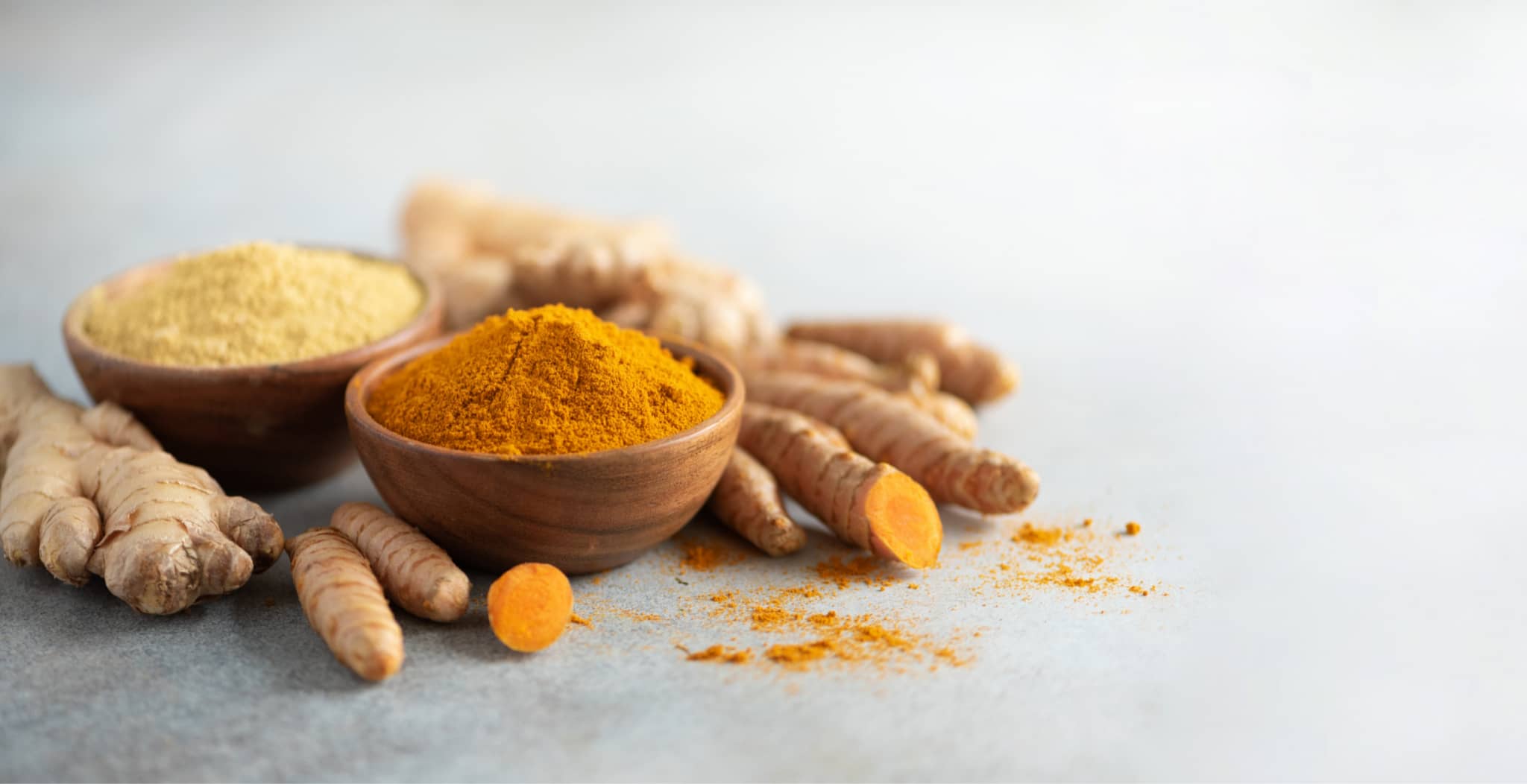In recent years, there has been a notable surge in the popularity of holistic and alternative therapies when caring for our horses. This trend reflects a growing recognition among horse owners, trainers, and veterinarians of the importance of addressing equine health and wellbeing from a comprehensive and integrative perspective.
Holistic approaches emphasise treating the whole horse—body, mind, and spirit—rather than focusing solely on isolated symptoms or conditions. Alternative therapies, such as acupuncture, chiropractic care, herbal medicine, and magnetic therapy, offer natural and non-invasive alternatives to conventional treatments, often with fewer side effects and a focus on promoting the body's innate healing mechanisms.
Additionally, as more research validates the efficacy of these modalities and anecdotal evidence of their benefits accumulates within the equine community, horse owners are increasingly embracing holistic and alternative therapies as valuable tools in optimising their horses' health, performance, and overall wellbeing.
Amidst the array of supplements and treatments, one ‘golden spice’ has gained significant attention within the equine community for its potential benefits: Turmeric.
Turmeric is a spice steeped in centuries of traditional medicine and culinary culture, boasting a reputation for its potent anti-inflammatory and antioxidant properties and its role in promoting health and wellbeing. Known for its vibrant colour and rich history in human medicine, turmeric has emerged as a well supported aid in addressing various health concerns and enhancing performance of our horses.
In this article we look at Turmeric in more detail and why the use of the natural derived ingredient is now widely adopted within the equestrian world. We review what clinical studies support claims made by Turmeric producers and the reported beneficial and negative reactions when using the spice on horses.
What is Turmeric?
Turmeric is a product of the plant Curcuma longa, a rhizomatous herbaceous perennial plant belonging to the ginger family Zingiberaceae, which is native to tropical South Asia. As many as 133 species of Curcuma have been identified worldwide.
Curcuma Longa is grown to produce the bright yellow spice and dye which is taken from the underground stems (rhizomes) of the plant, which themselves contain a chemical called Curcumin.
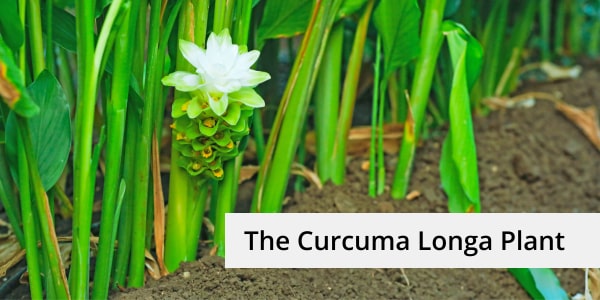
What is Curcumin?
At the heart of Turmeric's therapeutic potential lies its primary active compound: Curcumin.
Curcumin is responsible for the vibrant yellow colour of Turmeric and is also known for its various health benefits.
As an active ingredient in Turmeric, Curcumin has been studied for its potential therapeutic effects on a wide range of health conditions, including arthritis, cardiovascular diseases, neurological disorders, and cancer. It is thought to work by modulating various molecular pathways involved in inflammation, oxidative stress, and cell proliferation, among others.
Curcumin is widely used in health supplements and many horse owners around the world have administered the spice to their horse in the hope that its’ natural anti-oxidant properties can benefit them.
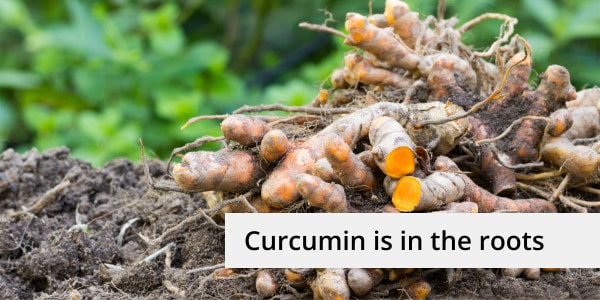
Turmeric Powder For Horses
While turmeric holds promise as a natural supplement for horses, its use should be approached with caution. Turmeric powders are now widely available within the equine community.
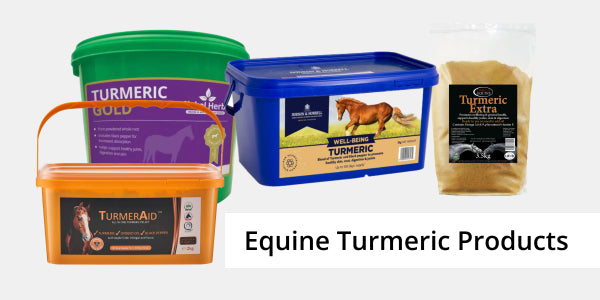
Turmeric for Horses | What is Used For?
Turmeric is widely promoted within the equestrian health care community as a supplement to benefit horses with equine joint conditions, inflammatory conditions, digestive problems, various skin problems and issues with the hooves.
There are a vast list of manufacturers who use Turmeric within their active ingredients. These range from adding pure Tumeric powder to the horses exiting diet, which can be as little as £20 per bag, to carefully formulated herbal mixes which can be 10x the price and claim to support the horses circulatory, lymphatic and immune systems.
Turmeric supplements are available in the form of capsules, powders, and extracts. It’s essential to note that the bioavailability of Curcumin from Turmeric is relatively low, so many products sold on the market are mixed with digestible ingredients to help the absorption of the Curcumin in the horses body.
Integrating Turmeric into a horses diet can be done in various ways, depending on preference and practicality. One common method is to feed Turmeric powder mixed with a carrier oil, such as coconut or flaxseed oil, to enhance its absorption rate.
Turmeric paste or pellets are also available commercially, providing convenient options for supplementation as they are absorbed more efficiently by the horse.
When introducing turmeric to a horses' diet, it's essential to start with small doses and monitor for any adverse reactions. As with any dietary supplement, it's advisable to consult with a veterinarian or equine nutritionist to ensure proper dosage and suitability for the individual horse.
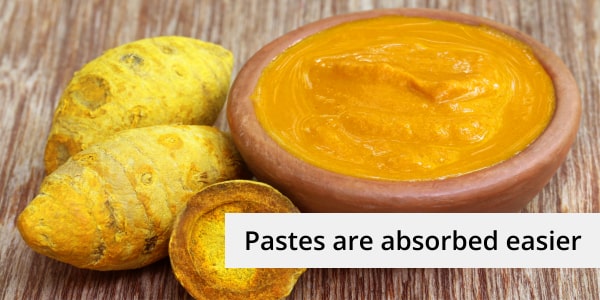
Reported Equine Health Benefits of Turmeric
-
Anti-Inflammatory Support: Inflammation is a common concern in equine health, whether resulting from injury, intense training, or chronic conditions like arthritis. Turmeric's anti-inflammatory properties, mediated by curcumin, offer a natural solution to alleviate discomfort and promote recovery. By modulating key inflammatory pathways, turmeric has reported to help mitigate pain and swelling whilst supporting a horses' overall comfort and mobility - with reported benefits on horses with Navicular, Windgalls, Ringbone and other inflammatory based conditions. It must be noted that Turmeric has never been proven, within peer-review published studies, to reduce inflammation and thus represents an ‘alternative approach’ to managing inflammation in horses.
-
Joint Health and Mobility: The overall condition of a horses joints is paramount for all horses and in particular animals who lead an active lifestyle such as professional sports horses, whose performance hinges on optimal mobility and flexibility. Turmeric's potential to support joint health stems from its ability to protect cartilage from degradation and reduce inflammation in the joints. Studies suggest that curcumin may help alleviate symptoms associated with horse arthritis and other degenerative joint conditions, offering horse owners a holistic approach to maintaining joint function and mobility. As its use is not on any banned substance list; sports horses at all levels can be administered Turmeric as part of their ongoing joint health. It should also be noted that Turmeric has never been proven, within peer-review published studies, to improve joint mobility and thus represents an ‘alternative approach’ to managing joint health and mobility-levels in horses.
-
Digestive Wellness: A healthy digestive system is essential for horses' overall wellbeing, influencing nutrient absorption, immune function, and overall performance. Turmeric's anti-inflammatory and anti-oxidative properties are said to extend to the gastrointestinal tract, where they claim to help soothe digestive inflammation and support gut health. Additionally, Turmeric's ability to stimulate bile production aids in fat digestion and nutrient absorption, promoting digestive efficiency and nutrient utilisation. Once again, It must be noted that Turmeric has never been proven, within peer-review published studies, to improve digestive wellness and thus represents an ‘alternative approach’ to managing a horse digestive system.
-
Immune Support: Ensuring robust immune function is crucial for horses, particularly those exposed to the stresses of competition, travel, and environmental challenges. Turmeric's properties are said to bolster the body's natural defence mechanisms, helping horses better withstand pathogens and stresses. Turmeric is reported to enhance a horses' resilience to pathogens and thus improve the horses’ vitality, contributing to improved overall health and increased performance. Again, It must be noted that Turmeric has never been proven, within peer-review published studies, to improve a horses immune system and as such is deemed as an ‘alternative approach’.
- Performance Enhancement: Beyond its therapeutic benefits, Turmeric is hailed for its potential to enhance athletic performance in horses. By addressing underlying issues such as inflammation, joint discomfort, and digestive disturbances, Turmeric claims to optimise a horses' physiological function and energy levels. Many trainers and riders have reported improvements in stamina, endurance, and recovery when incorporating turmeric into their horses' regimen, highlighting its role as a natural performance enhancer. And finally, as with other claims surrounding the use of Turmeric, no peer-reviewed clinical studies support this claim and as such it is not supported by medical publications.
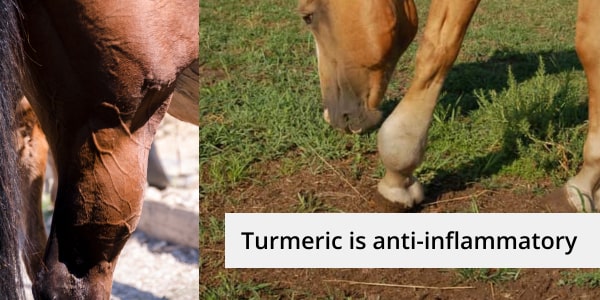
Clinical Studies Supporting The Health Benefits of Turmeric in Horses
As a manufacturer of the world’s leading Advanced Magnetic Therapy for horses, StreamZ Global are acutely aware of the importance in obtaining clinical support and extensive efficacy evidence when marketing health related claims.
The use of Turmeric when treating conditions in horses should only ever be a ‘complementary approach’ and never as a replacement to any prescribed medications or treatments.
Over the years there have been many claims made by supplement companies containing Turmeric and this continues today - many of which do not have the medical authority to make the claims they do.
Caution must be applied. Turmeric contains just 2½-3% of curcumin, so not much at all based on what is administered! Within studies, data suggests it could take as much as 250-500g turmeric to deliver an effective dose to a horse - but over feed the horse with extreme caution. Curcumin can affect iron metabolism in the horse’s body, which has shown to contribute to the development of Anaemia. As such, Turmeric should not be given to horses diagnosed with chronic disease or Anaemia.
Does not having clinical proof mean that Tumeric doesn’t help? Many alternative health solutions are available to horse owners without the medical support of published-clinical studies, including equine treatments such as EQU StreamZ magnetic therapy, Kinesiology and even equine massage. A parachute isn’t ‘clinically proven to save lives’ - but jump out of an aeroplane without one and see how you feel about that fact.
If you're interested in Turmeric supplementation for your horse, you may want to look for equine-specific products that have been formulated and tested specifically for use in horses. These products may provide more reliable dosing and efficacy compared to using human supplements.
As we write this article (in Qtr1 2024) there remains no clinical evidence published for the beneficial use of Turmeric in horses. As there isn't an extensive body of clinical studies specifically focusing on Turmeric's health benefits in horses no medical claims should be made by any producer.

Concerns Regarding Kidney Health and Turmeric
Despite its myriad of health benefits, concerns have surfaced regarding turmeric's impact on kidney health, particularly among horses with kidney issues or previously diagnosed disease.
Studies present conflicting evidence:
-
A study in the Journal of Agricultural and Food Chemistry demonstrated kidney damage in rats exposed to high doses of Curcumin. However, these doses far exceeded typical consumption levels in horses - it does represent an area of concern.
-
Conversely, research published in the Journal of Medicinal Food found Curcumin to shield diabetic rats' kidneys, hinting at potential benefits for those with diabetic kidney disease. The plot thickens!
- A comprehensive review in the journal Molecules highlighted the mixed evidence, acknowledging both potential harm and protective effects of Curcumin on kidney function, depending on dosage and context.
Following a request from the European Commission, the EFSA Panel on Additives and Products or Substances used in Animal Feed (FEEDAP) was asked to deliver a scientific opinion on the safety and efficacy of Turmeric when used as sensory additives in feed and in water for drinking for all animal species, including horses who were evaluated on the basis of taking 6 mL per head on a daily basis. This evaluation led to the following statement, which in turn begun the commercialisation of the compound within many equine branded supplements.
“No concerns for consumers were identified following the use of the additives at the proposed use level in animal nutrition. Turmeric extract, turmeric oil, turmeric oleoresin and turmeric tincture should be considered as irritants to skin and eyes and the respiratory tract and as skin sensitisers. The use of the additives in feed is not expected to pose a risk for the environment. Since turmeric and its preparations are recognised to flavour food and their function in feed would be essentially the same as that in food, no further demonstration of efficacy is considered necessary.”
Navigating Turmeric with Kidney Disease
For individual horses previously diagnosed with kidney disease, consulting a healthcare professional before supplementing them with Turmeric is crucial.
While high doses of Curcumin may pose risks, moderate consumption within a balanced diet is unlikely to adversely affect kidney health. In fact, some studies as shown above suggest potential benefits!
Reported Negative Side-Effects of Turmeric to Horses
As well as reported issues with a horses Kidneys and Turmeric - there are other negative side-effects reported when using Turmeric to support a horses ongoing health.
Gastrointestinal Upset (An upset tummy)
Most likely the most common side-effect of administering Turmeric to horses is an upset stomach. While Turmeric is generally well-tolerated, some horses may experience an upset tummy, including diarrhoea or colic, particularly when introduced to Turmeric in large quantities or without proper supplementation protocols. This can also lead to ulcers.
Interference with Medications
Turmeric may interact with certain medications commonly administered to horses. For instance, it could potentiate the effects of blood-thinning medications, potentially leading to bleeding issues. Horse owners should consult with a veterinarian before adding Turmeric to their horses diet if they are receiving medication.
Allergic Reactions
In rare cases, horses may exhibit allergic reactions to Turmeric. Symptoms can range from mild skin irritations to more severe allergic responses such as hives, swelling, or even difficulty breathing. If you have never administered Turmeric before then it is advised to first administer a small quantity and closely monitor the horses reaction.
Discoloration
The vibrant yellow pigment in Turmeric can stain a horse's coat, especially in light-coloured horses. While this side effect is purely cosmetic, it may be undesirable for those concerned about the horse's appearance, particularly in show or competition settings.
Conclusion
Turmeric stands as a spice celebrated for its health-promoting properties but while Turmeric holds promise as a natural supplement for horses, its use should be approached with caution.
Horse owners should consult with a veterinarian before incorporating turmeric into their horse's diet, especially if the animal has underlying health conditions or is on medication. Careful consideration of dosage, potential side effects, and individual horse sensitivity is essential to ensure the well-being and safety of equine companions.

